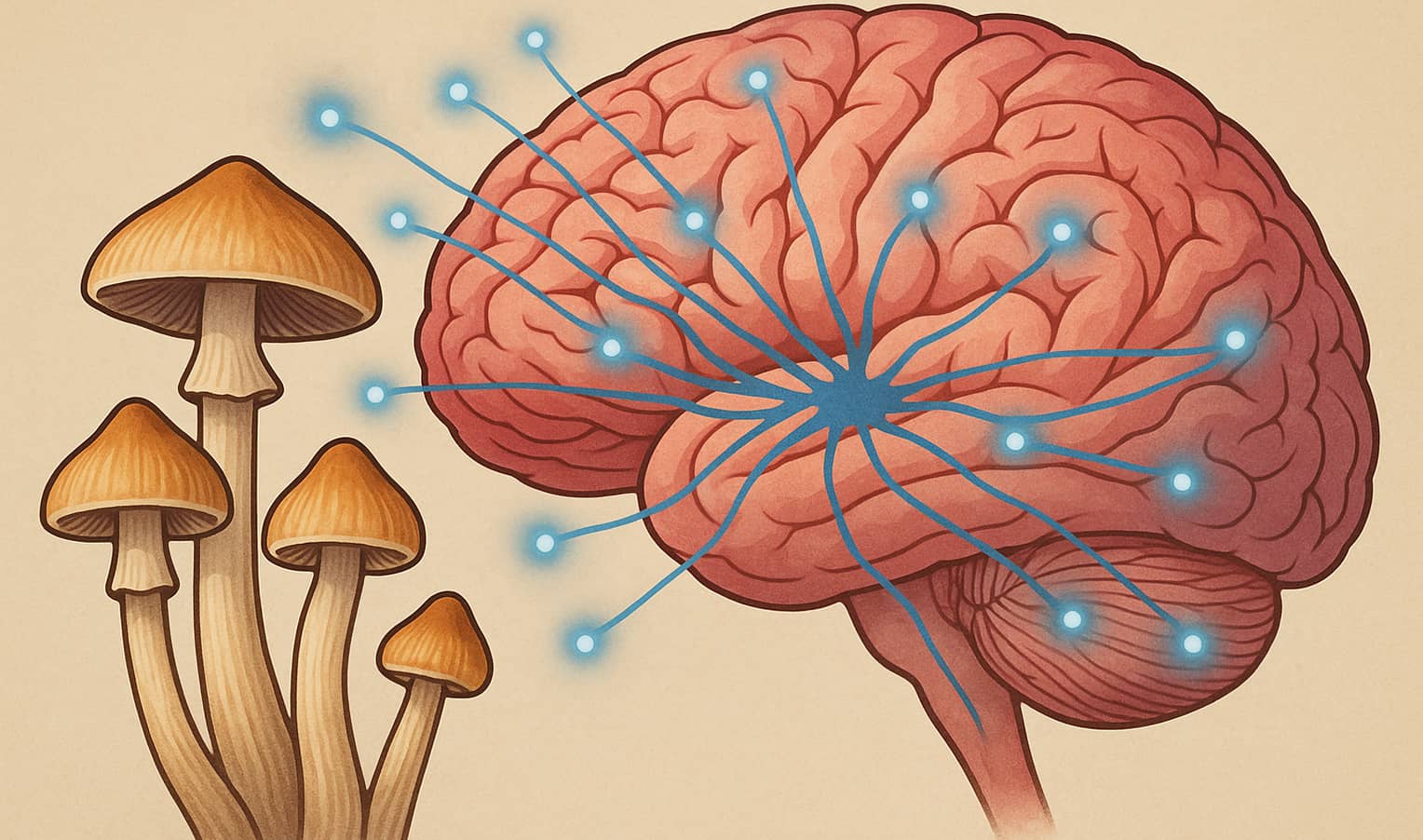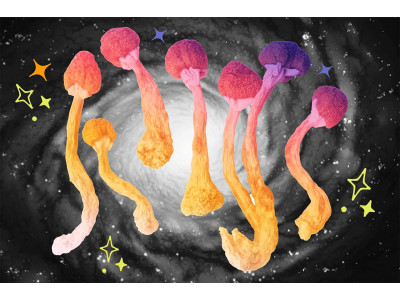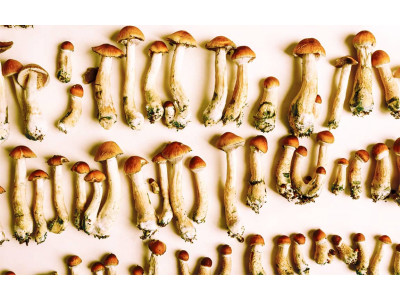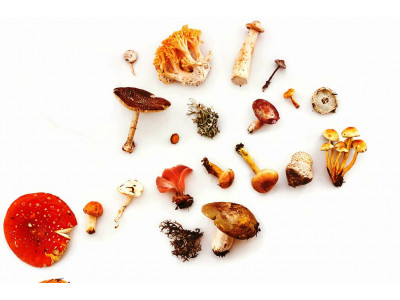For centuries, "magic mushrooms" have been used by various cultures as a means for spiritual practices and healing. Today, interest in them goes beyond rituals — psilocybin has become the subject of serious neuroscientific research. This substance, which transforms into psilocin in the body, affects the brain, alters perception, and opens new perspectives in treating depression, anxiety disorders, and addictions.
How Psilocybin Works
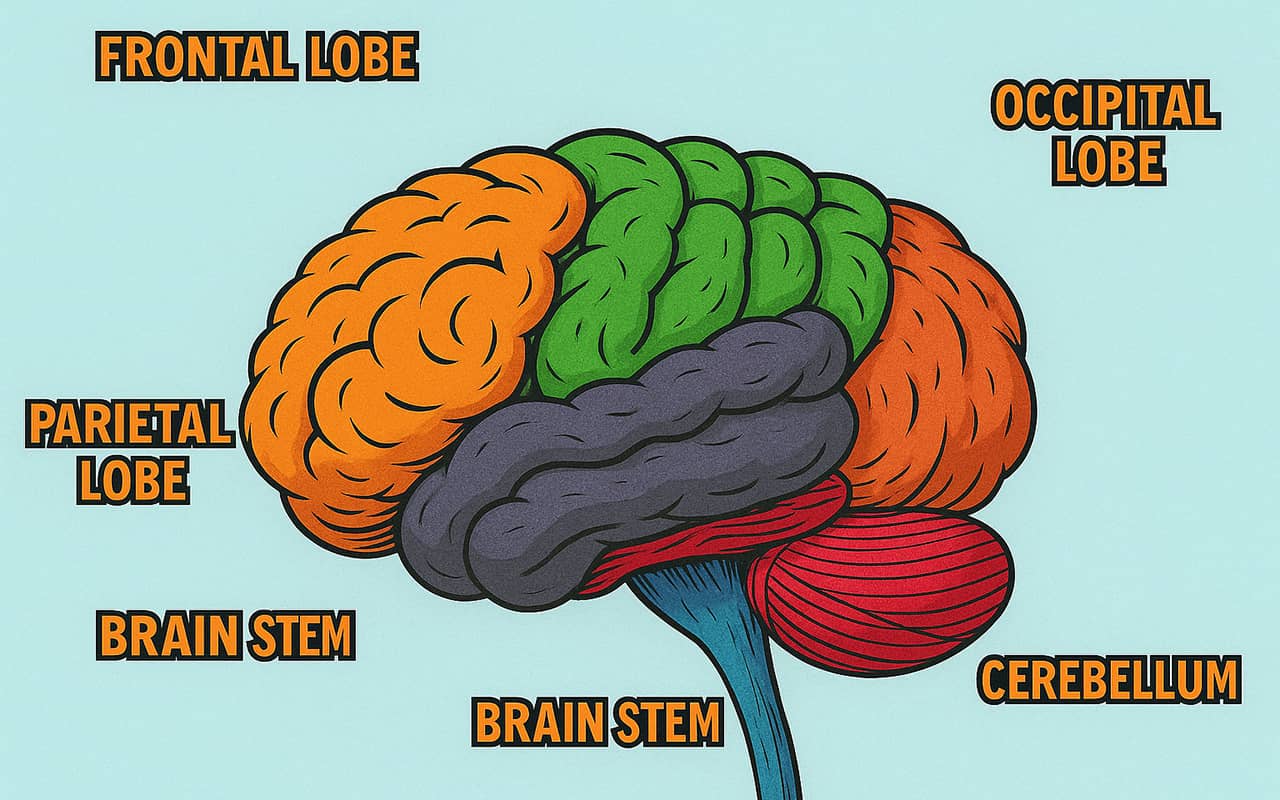
The main target of psilocin is the serotonin 5-HT2A receptors, concentrated in the prefrontal cortex. Their activation triggers the reorganization of brain networks: familiar connections weaken, while previously unrelated regions begin to interact. This gives rise to the "ego dissolution" effect and unusual associations. Additionally, the substance influences the dopamine system, which is responsible for motivation and the sense of reward, helping to explain subjective insights and emotional shifts.
Psilocybin reduces the activity of the amygdala — the center of fear and anxiety — which allows patients to feel relief and react less to negative stimuli. At the same time, studies show that it stimulates neuroplasticity and even the growth of new synaptic connections, especially in the prefrontal region. This opens a "window of opportunity" for psychological restructuring and working with painful memories.
Impact on Mood and Therapeutic Potential
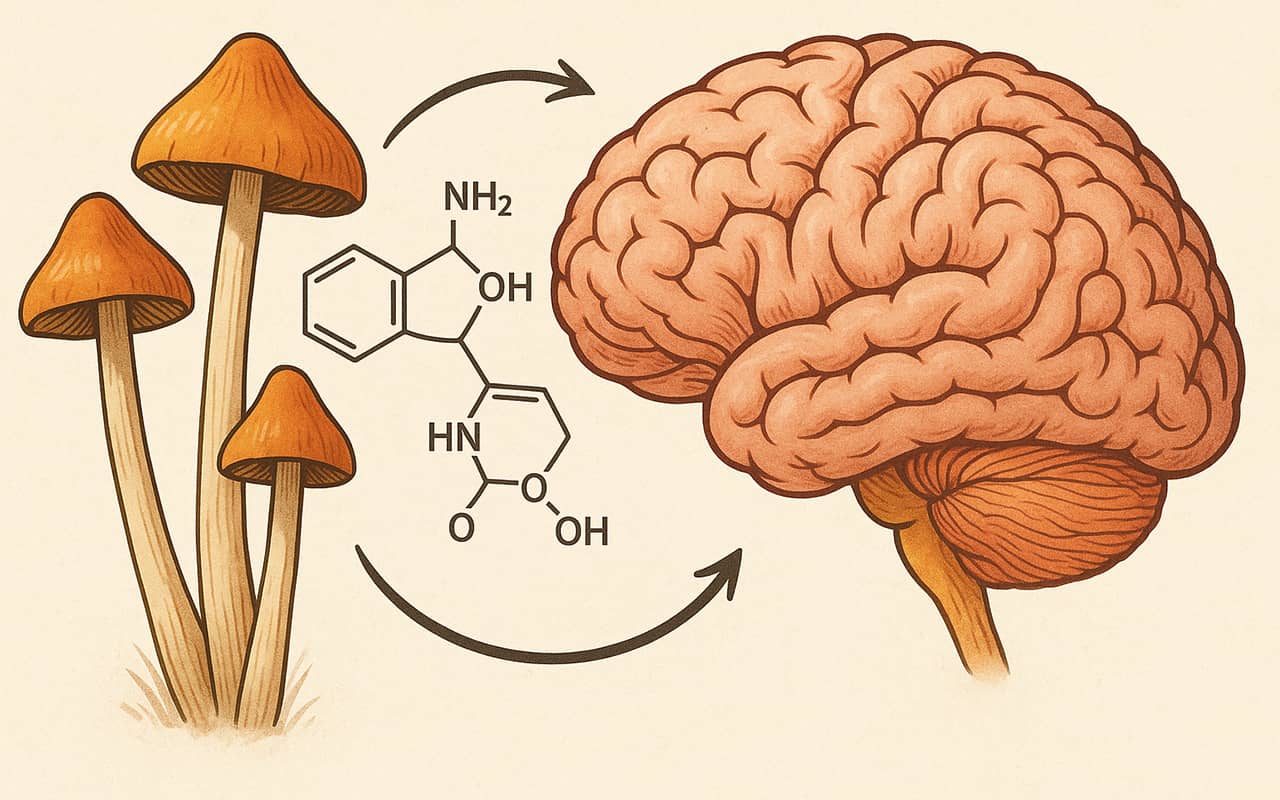
During the experience, users often feel a deep sense of connection with themselves and the surrounding world. In clinical settings, this manifests as a reduction in negative affect, greater openness, and the ability to perceive difficult emotions in a new way. Patients report that sadness or anxiety do not disappear completely but stop controlling their lives. Moreover, the effect can last for weeks after a single session.
A comparison with antidepressants reveals an important difference: while SSRIs only maintain serotonin levels, psilocybin activates deep emotional mechanisms and stimulates brain flexibility. In clinical trials under specialist supervision, it helps people with treatment-resistant depression and shows results that traditional medications take weeks to achieve.
Limitations and Use in Addictions
Despite its potential, psilocybin is not a universal medicine. Its power emerges only in professional settings, where dosage, environment, and therapist support are taken into account. Combining it with antidepressants or alcohol can be dangerous, and it must not be used by people with psychotic disorders.
At the same time, research shows that the substance helps with addictions to alcohol, nicotine, and opioids. It affects the dopamine reward pathways and allows people to view habitual behavior from a different perspective, making it easier to form new patterns.
Conclusion
Psilocybin has ceased to be a symbol of the counterculture and has taken its place in the laboratories of neuroscience. Its ability to change brain networks, reduce anxiety and enhance neuroplasticity makes it a promising tool for psychotherapy. However, it is not a panacea: it is a door that can only be opened with the right key - a scientific approach and responsible application, especially in the cultivation of psilocybin mushroom spores.

